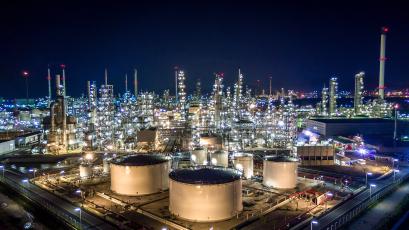At only 21 years old, Matt was diagnosed with heart valve disease — a condition he was able to manage with the help of doctors and medicines for nearly a decade. Yet at 29, Matt received the news he had been fearing: he needed open heart surgery to perform a heart valve transplant, a diagnosis that no young man wants to hear. Since Matt was so young, his doctor recommended a mechanical heart valve — a device that would last much longer than a tissue valve and would prevent him from needing follow up surgeries down the road. Matt followed his doctor’s advice, and he has not looked back since. Thanks to the mechanical bileaflet valve that Matt received, he remains an avid athlete today, enjoying snowboarding, surfing, mountain biking and all the activities he enjoyed prior to his diagnosis.
Matt is not alone. In the United States, more than 80,000 adults undergo surgical procedures to repair or replace damaged heart valves each year, with more than 3 million receiving artificial heart valve replacements globally over time. The SJM Regent™ mechanical heart valve — which Matt received — is the most widely implanted mechanical valve in the world today. At the core of this life-saving ingenuity is the chemical compound propylene, provided by American petrochemical manufacturers.
While propylene’s sister compound ethylene was in the first artificial heart valve used in 1952, it’s propylene that makes modern mechanical heart valves possible. Early mechanical valves proved the concept, but they were prone to forming blood clots and other complications, so scientists and engineers had to come up with a different design and new materials. In the late 1970s, the bileaflet heart valve was introduced. This design uses two tiny halfmoon-shaped discs that open and close with the flow of blood. They are constructed of a very special type of material called pyrolytic carbon, which is different than graphite and graphene.
Instead of using propylene as a building block to make a plastic ball, as ethylene was once used, manufacturers use propylene today to supply individual carbon atoms under very controlled conditions to coat the leaflets and pivots with pyrolytic carbon. Pyrolytic carbon is one of the only substances known to prevent the formation of blood clots on the surface — which means patients have one less thing to worry about as they process a diagnosis that, while typically manageable, can cause considerable anxiety and concern.
Mechanical valves are designed to mimic and function like a natural, healthy heart valve, permitting proper blood flow through the heart. Unlike tissue valves, mechanical devices are typically recommended for patients under 40 and are built to last a lifetime. Thanks to propylene, more patients like Matt are seeing more birthdays — and enjoying a better quality of life while doing so.
Beyond Heart Valves
Propylene is not only helping make progress throughout the medical industry by saving vital organs and lives, it is also empowering innovation all throughout the petrochemical market. As one of the oldest petrochemical building blocks and the second-largest-volume chemical produced in the world, propylene is present in many of the products we know and love today.
Polypropylene, a propylene derivative, can be found in the most cutting-edge vehicles at this year’s international auto shows — from the speakers blasting music as we drive to the bumpers that absorb impact in collisions, minimizing repair costs and preventing injuries. It is even found in polymer banknotes — the bills that keep the global economy bustling.
Propylene glycol also enables progress throughout the medical industry and helps protect human health, by helping people stop smoking. A common ingredient in e-cigarettes, propylene glycol is responsible for the smoke-like vapor that these devices emit — and has had a major impact to date. A study released last year found that from 2011 to 2015, e-cigarettes helped at least 350,000 people stop smoking, putting them on the path toward a healthier future.
In a given day, you will likely come in contact with dozens of products made from propylene — items that make access to modern health care, technology and transportation possible. Propylene is not only a petrochemical building block, it is also enabling progress throughout our everyday lives. And AFPM members are proud to be a part of it.


